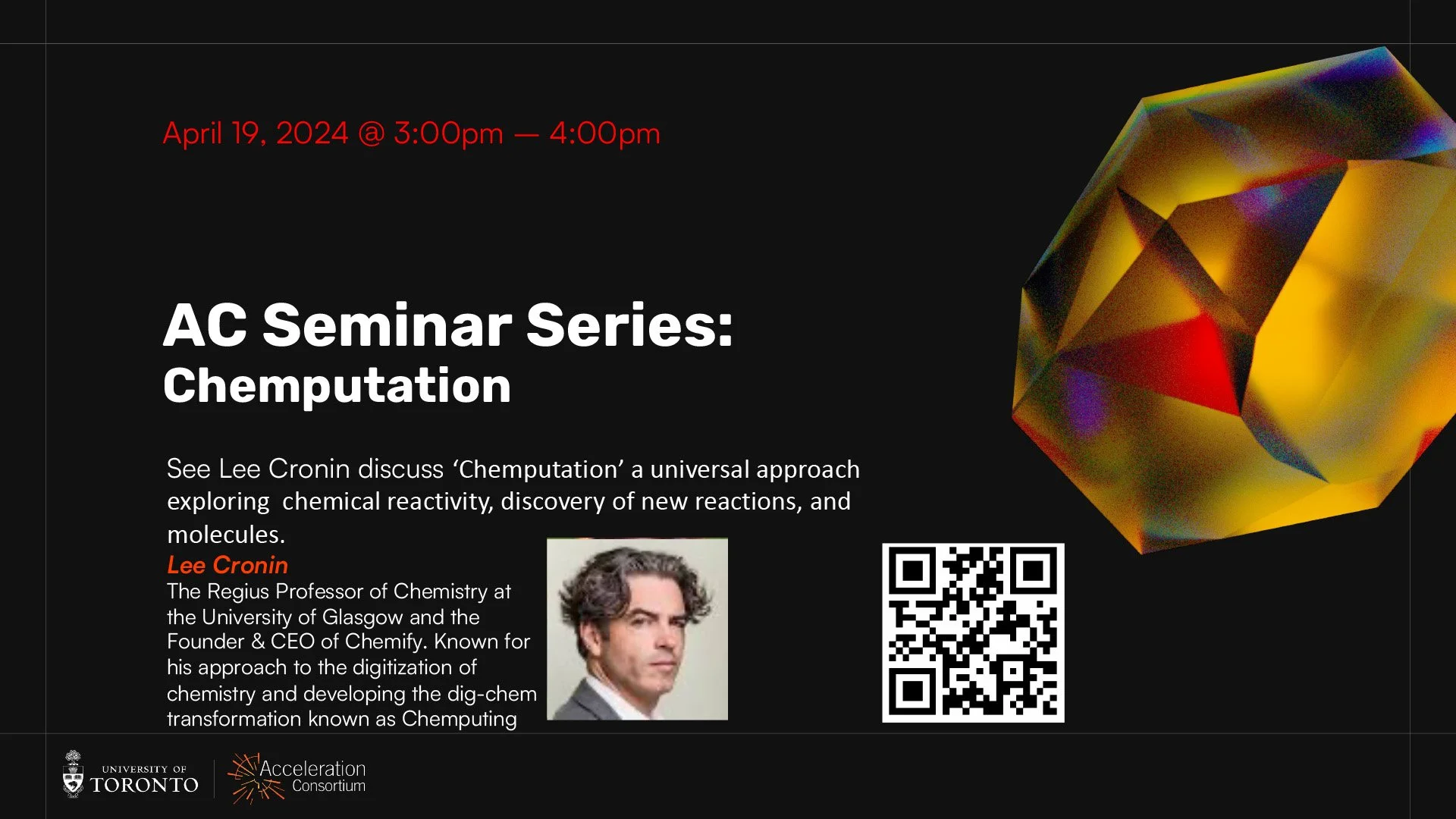This event is organized by U of T's Acceleration Consortium.
Date: April 19, 2024
Speaker: Lee Cronin
Time: 3:00 p.m. - 4:00 p.m. ET
Location: Hybrid
Virtual: Zoom
In-person: Bahen Centre for Information Technology (40 St. George St.)
Abstract
Lee will explain why ‘Chemputation’ is a universal approach to explore chemical reactivity, discovery of new reactions, and molecules, as well as program chemical synthesis that allows us to translate all procedures, manual or automatic, into a executable chemical programming language that can run the processes on a chemputer. This code is written in the world’s first universal programming language for chemistry: χDL (pronounced Chi-DL). This new approach maps into a universal programming language for chemistry that is accessible to ALL synthetic chemists and will work on ALL robotic systems (subject to suitable specification). We demonstrate that the process is universal, and by analogy with computation, we call systems capable of universally turning code into reliable chemistry and materials processes Chemputation, see Figure:
Figure: Depiction of a chemical state machine (CSM) for synthesis that is capable of Chemputation. The input is a combination of reagents, process information and hardware addresses. The CSM organizes the reagents and the processes by using a scheduler that then gets executed in the hardware as a function of the available state until the product is formed.
Bio:
Lee Cronin is a Chemist. He is the Regius Professor of Chemistry at the University of Glasgow and the Founder & CEO of Chemify. He is known for his approach to the digitization of chemistry and developing digital-to-chemical transformation known as Chemputing which can turn code into reactions and molecules. He has also developed a new theory for evolution and selection called assembly theory which aims to quantify and explain how selection can occur in chemistry before biology. Lee is also exploring how chemical systems can compute, and what is needed for the evolution of intelligence, as well as designing a new type of computational system that uses information encoded in chemical reactions and molecules.
Note: Event details can change. Please visit the unit’s website for the latest information about this event.


